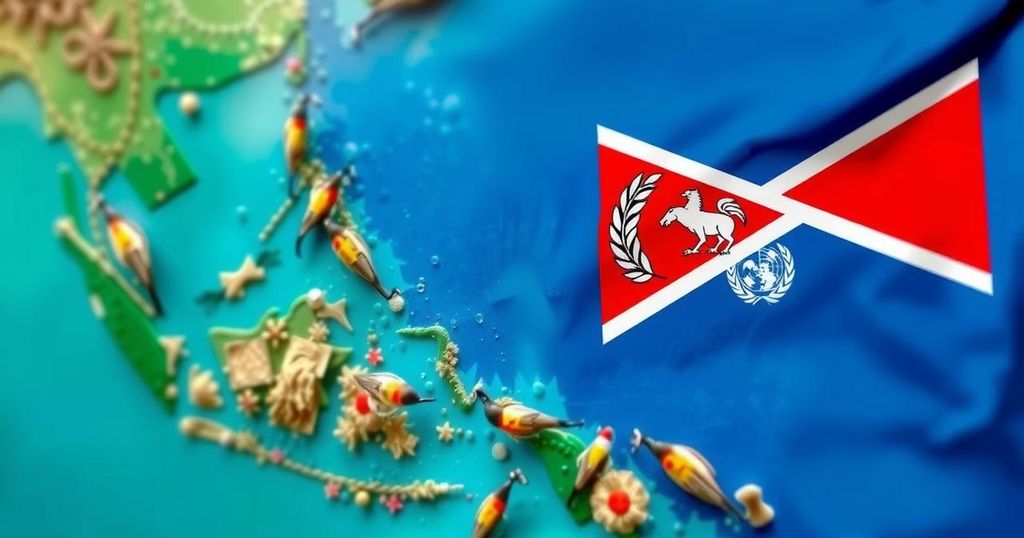Papua New Guinea has declared its intention to boycott the upcoming UN climate summit, COP29, criticizing it as ineffective and accusing major polluters of making hollow commitments. The country plans to pursue bilateral agreements for climate action instead, signaling a shift in strategy that may inspire other vulnerable nations.
Papua New Guinea has officially announced its decision to boycott the upcoming United Nations climate summit, COP29, set to take place in Azerbaijan next month. The country’s foreign minister, Justin Tkatchenko, has described the climate negotiations as a “waste of time,” accusing major polluters of making empty promises regarding climate action. Tkatchenko criticized the conference format, stating, “There’s no point going if we are falling asleep because of jet lag because we’re not getting anything done.” He emphasized the frustration over the lack of tangible results from previous summits and expressed disappointment that funds promised for climate relief often fail to reach those in need, suggesting that they mainly benefit consultants instead. Papua New Guinea, which houses the third-largest rainforest globally and is severely affected by climate change, aims to focus on bilateral agreements with nations like Singapore instead. Tkatchenko’s bold stance has resonated with other Pacific island nations who feel marginalized at these summits, as he noted, “I’m speaking up on behalf of the smaller island states that are worse off than Papua New Guinea. They were getting no traction and acknowledgement at all.” As global discussions on climate change continue to face scrutiny, particularly regarding their effectiveness, the decision by Papua New Guinea marks a significant moment, as it is one of the first nations to publicly renounce participation in the UN’s premier climate discussions, advocating instead for more direct and impactful collaborations.
The commentary surrounding climate change negotiations reflects widespread discontent among nations adversely affected by global warming. Many critics argue that the annual Conference of the Parties (COP) summits, established primarily to manage climate issues and create actionable resolutions, often fall short of their intended goals. This criticism has intensified over time as developing countries, like Papua New Guinea, which contributes significantly to global carbon absorption, find themselves neglected amid the persistent commitments from large polluters without any concrete progress or assistance. The ongoing vulnerabilities that island nations face, such as rising sea levels and varying climate conditions, amplify their plea for more effective and immediate climate measures.
In summary, Papua New Guinea’s boycott of the COP29 summit reflects growing frustrations among smaller nations regarding the effectiveness of UN climate negotiations. By prioritizing direct climate agreements over participation in what they perceive as unproductive discussions, Papua New Guinea is shifting its strategy. This call to action may resonate with other nations facing similar challenges, potentially fostering a trend toward more localized and impactful climate partnerships.
Original Source: www.rfi.fr






